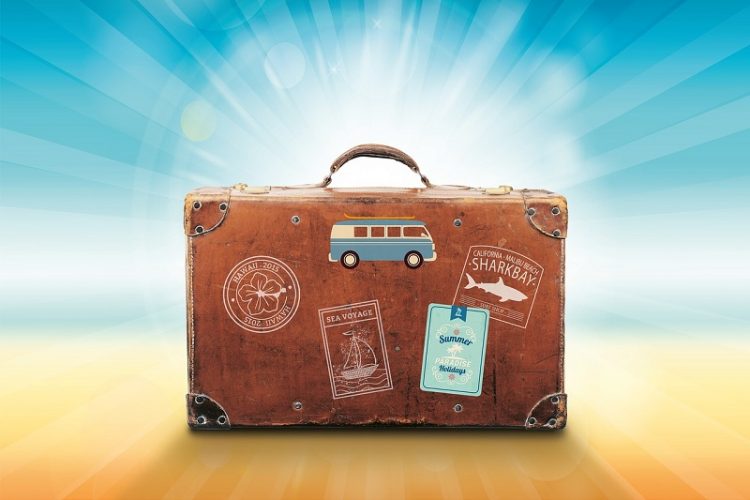
Travel Startup Challenges
The travel industry made the much-needed transition from physical offices to websites where travellers from all over the world can book flight tickets, hotel rooms, buses, and cabs from the comfort zone of their homes. There are about 67,000 travel companies valued at US$20 billion in the USA alone, and this number is growing steadily. Here are some of the common travel startup challenges and issues, which could act as a heads-up if you’re venturing into the travel startups.
Travel Startup Challenges and Opportunities
1. Expansion
With low-profit margins and tightening competition, travel startups often find expansion and growth to be a huge challenge. Getting more customers is essentially the key to expansion, as travel companies make money only when there’s volume. Expansion is also one of the important prerequisites to sustainability as a travel company.
Having a global presence would make it easier for acquiring customers from the brand recall that it comes with. Since travel is an industry where focusing on multiple geographies would be necessary, different laws and regulations in different countries. It create friction while implementing newer features into your service.
2. Intense Competition
One of the biggest challenges faced by travel startups is competition. Apart from the competition from companies with the same business model, most travel startups would also have to face competition from hotel chains and flight companies that are directly trying to capture the market by eliminating the middlemen like OTAs. Competition is also fueled by the increasing popularity of price comparison sites that makes it easier. It is used to compare prices across different OTAs in the blink of an eye.
3. Getting Repeat Customers
Customer is the King is a phrase that has been held across the ages of transformation in the business world. Winning the trust of a customer is something that’s becoming a bigger challenge now, with multiple options. Travellers are typically on a lean budget which makes them vulnerable to the attractive offers they are bombarded with every single day. This again makes it tougher to retain customers in the travel industry.
The average traveller would make 2 or 3 trips in a year. Even if you manage to make them use your services the first time, he/she might not have enough brand recall to come back to you after 5-6 months. The only way to counter this problem is to implement a customer-centric business philosophy that can win customers despite all the odds. This will put travel startups on their journey to having a loyal customer base and a high turnover rate.
4. Low-Profit Margins
The travel industry, being in the service sector, doesn’t have high-profit margins. In fact, the profit margin is far lesser compared to many other industries. The low-profit margins can be attributed to the commission-based model they work on. There is also the risk of things going haywire where the OTA will have to bear the expense.
Since it takes significant capital and resources to start-up in the travel industry, it is vital to ensure that the profit margin is always on the high side. It would become difficult to survive otherwise. One way to counter this problem is by keeping the operational costs as low as possible through smart utilization of technology and automation.
5. Geo-Diversity
The life of travel startups could have been much better if only travellers were making shorter trips around a particular geography. Unfortunately, this is not the case. It doesn’t make sense to expect customers to use your service if it is only relevant to a specific geography. Simply put, you must equip your service with everything it takes to make it a place where customers can get service for every trip they make.
Giving people more options to explore will help you scale up faster and make the service more dynamic. Making your service relevant to multiple geographies is the corporate startup challenges that travel startups should focus on as early as possible.
6. Acquiring Data to Work with
Data is the necessary component of business growth activities. The power of big data to provide actionable business intelligence and keep track of the competition is nothing new. Since the competition is at its peak, having access to real-time competition data is necessary for pricing intelligence, which most travel businesses rely upon. Being on a tight budget and lacking technical expertise, travel startups often find it difficult to acquire data to power their businesses.
This problem can easily be solved by outsourcing the web data acquisition process to web scraping service providers like PromptCloud. DaaS (Data as a service) providers can do screen scraping for travel websites at a much lower cost than what you would incur by trying to acquire the data in-house. Considering the low-profit margins and tightening competition, having quick access to data at affordable rates will act as a competitive advantage for travel startups. By going with a data extraction service, you will also be able to get around the tough task of maintaining web crawlers to have a steady data feed.
Conclusion
The travel industry is reaching the saturation point, companies are making themselves a one-stop destination for all the travel-related needs of customers. Being aware of the travel startup challenges can help you overcome them and face the rising competition. It is also important to keep track of the trends using data aggregated internally as well as from the web. This will help make better business decisions to not get affected by the challenges.


















